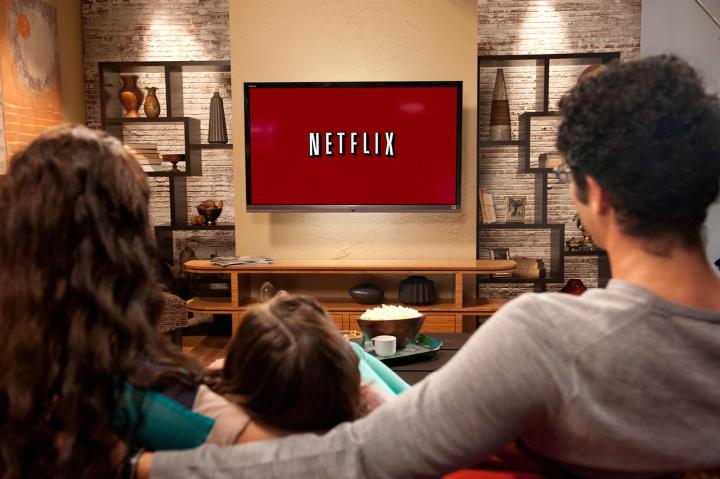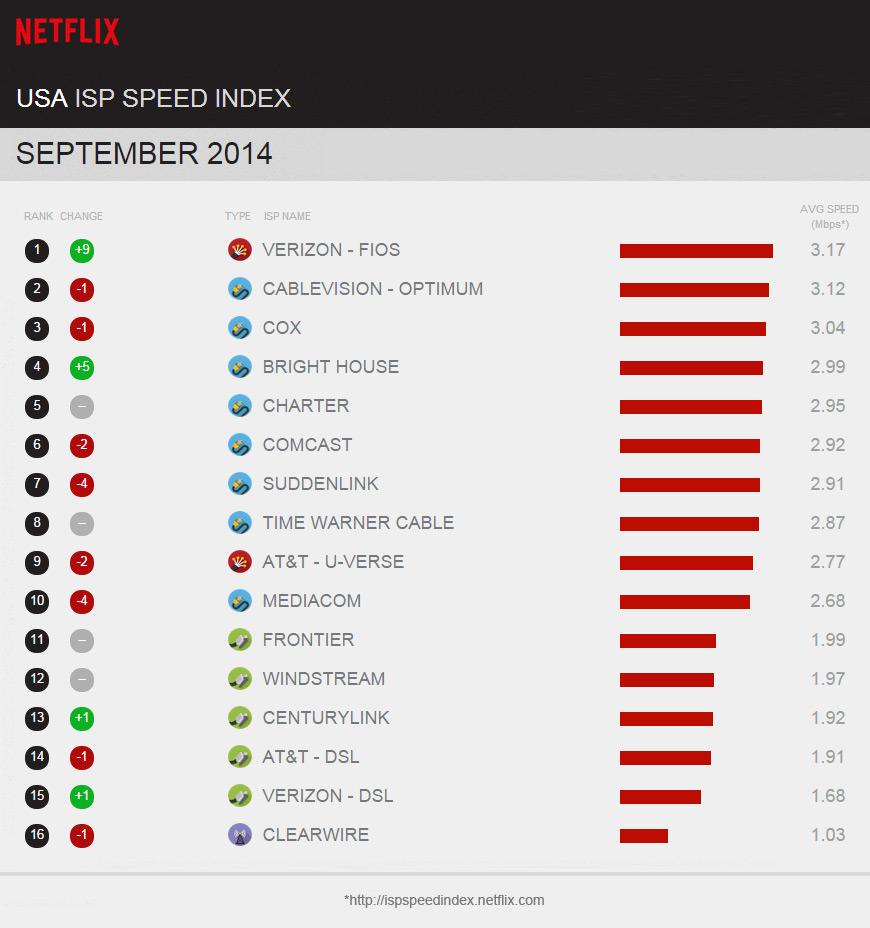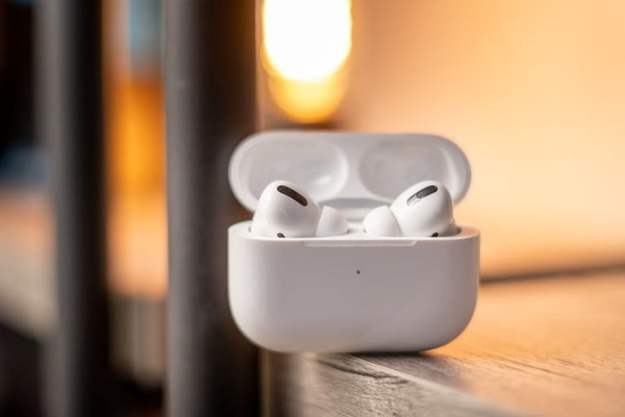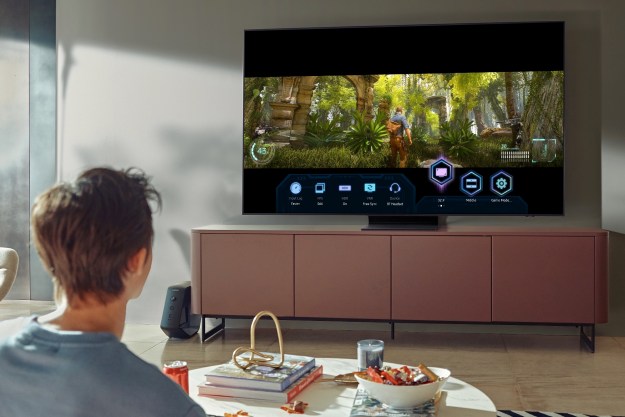
In an effort to smooth things out for its customers, Netflix developed something called “Open Connect” which allows Internet service providers (ISPs) to connect directly to Netflix for faster content delivery. Unfortunately, Open Connect hasn’t exactly been greeted with open arms by many major ISPs. Instead, companies like Comcast, AT&T, Verizon have decided to negotiate controversial pay-for-speed deals with Netflix. Those deals have caused a whole lot of bickering back and forth, but they’ve also preceded notable improvements in service for many Netflix customers.
Curious where your ISP stands? Interestingly enough, Netflix puts out its own Speed Index Report, which rates the top ISPs in the US. The purpose is two-fold: You get to see how services rank, and which have sped up or slowed down over time, and in doing so, Netflix puts a little pressure on ISPs to up their game. The only trouble is, it’s hard to keep track of the changes unless you monitor the report each month. So, we’re going to do it for you. Below you’ll find not only the latest numbers from the report, but also a little perspective on what it all means.
Netflix ISP Speed Index List for September 2014
(Note: This list ranks the nation’s largest ISPs only, so smaller carriers like the lightning-fast Google Fiber aren’t included.)
The big headline of the day when it comes to September’s top performers on the Index starts with a “V” and ends with an “ios,” as Verizon’s consistently sluggish Fios service surged to the very top of the list of the largest ISP streamers with an average speed of 3.17 Mbps. Verizon’s premiere service jumped up 9 spots in September, after sitting at a pathetic 14th place just two short months before. As some may recall, Verizon was one of the big service providers that inked a controversial deal which saw Netflix paying for faster connection speeds on its network. However, while the deal was struck all the way back in April, Verizon customers continued to experience languishing speeds for months.
The issue was so dramatic, it spawned multiple accusations in a very public and vitriolic he-said she-said war of words. Netflix event went so far as to create a customized alert for Verizon customers that read “Verizon network is crowded right now,” which prompted a cease and desist order from Verizon, and a blog post from Verizon’s VP of regulatory affairs, David Young blaming Netflix for the issues. In short, the relationship between the two hasn’t exactly been a love fest. But smooth streaming heals all wounds, and, for now at least, the two have worked out their issues to the delight of Fios customers everywhere. Verizon’s DSL service, however, remains sluggish at 1.68 Mbps, moving up a single slot from last place to hold the 15 spot.
Other notable movements include single slot drops for Cablevision – Optimum (3.12 Mbps), and Cox (3.04 Mbps), both of which are participants in the aforementioned Open Connect service, helping to allay concerns that Netflix deliberately ranks its direct partners unfairly. In fact, another Open Connect partner, Suddenlink (2.91 Mbps) dropped 4 slots to number 7, though all of the drops can be attributed to better numbers from competitors, rather than poorer performance from the services themselves, which remained virtually the same as last month.
Two other services that signed pay for speed deals with Netflix — Comcast (2.92 Mbps) and AT&T’s U-verse service (2.71 Mbps) — also dropped 2 slots, but both services actually showed slight increases in average speed in September, revealing an encouraging overall upward trend.

Using an average video bit rate measured from over 44 million users, the Speed Index rankings don’t offer a definitive score by any means, and Netflix certainly has motive to promote its own service. But the massive leap for Verizon is a good indicator that Netflix isn’t fudging the numbers


